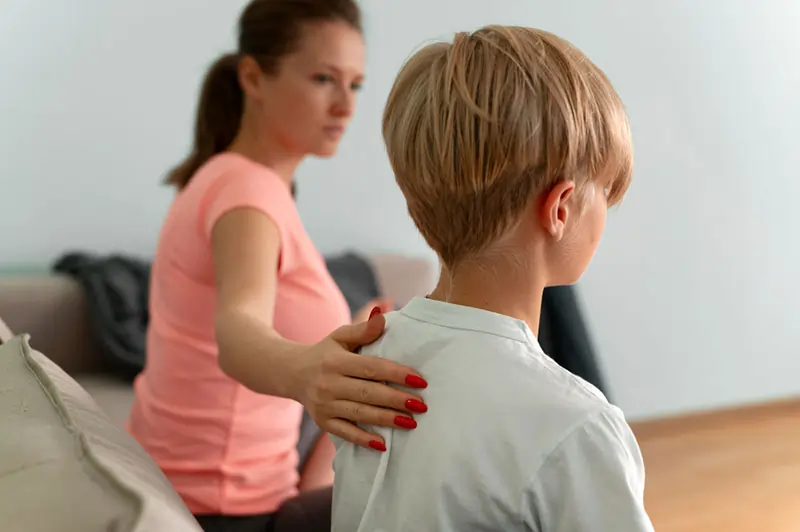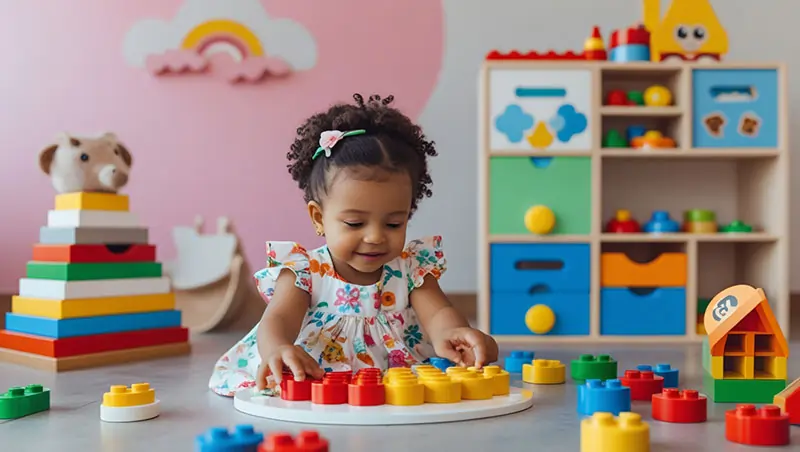Tips For Helping Your Child Navigate Traumatic Events

The post is developed in partnership with BetterHelp.
When something sudden and frightening happens, like the death of a loved one, you may left wondering how to help you child heal. Providing a safe, nonjudgemental environment can allow children time to process the complex emotions they’re feeling, and looking out for signs of psychological trauma can help you identify when professional help is needed.
What constitutes a traumatic event?
A traumatic event includes any event that causes psychical, emotional, psychological, or spiritual harm. If your child found something terrifying, shocking, or dangerous, it may be considered a traumatic event.
Examples include:
- Experiencing a natural disaster, such as floods, fires, hurricanes, or earthquakes
- Being the victim of or witnessing acts of violence, such as assault, shootings, terror attacks, or abuse
- Serious accidents, such as car crashes
- Sudden death of a loved one
- Serious illnesses
- Neglect or child abuse
- War or refuge experiences
- Parental mental illness or substance use
- Loss of a parent deployed with the military, incarcerated, or deported
- Parental divorce
- Abandonment
- Minority stress, such as from the experience of racism
- Bullying
Traumatic events can be difficult to navigate, especially when they happen in childhood. It’s typically recommended that you utilize services like family therapy to reduce the long-term impact that it has on your child. This is particularly important in the case of complex trauma (exposure to multiple traumatic events).
What you can do
There are things you can do to help your child feel safe, supported, and validated while they navigate these complex emotions. The following tips may be helpful:
● Debrief
Talking about the traumatic event is very important, and ideally occurs as soon as your child is no longer experiencing traumatic shock:
- Provide reassurance to your child, letting them know that the event is over and that they’re safe (only if this is true).
- Listen to them and validate their feelings.
- Discuss what happened at an age-appropriate level using easy-to-understand language.
- Note that withholding information may lead to children making false assumptions about what happened, so it’s important to provide them with accurate information and answer their questions honestly, without delving into unnecessary and frightening details.
- Make sure that your child has not begun to blame themselves for the trauma.
- Create space to discuss the event as a family to reduce isolation and help each member feel supported, understood, and connected.
- Discuss stress responses with your child and how it’s normal to respond in ways you might not expect, but that they will feel gradually feel better over time.
When you’re debriefing your child, remember that their concerns may be very different from your own. Instead of making assumptions, ensure they are allowed to ask as many questions as they’d like.
● Find time for closeness
After experiencing a traumatic event, physical connection, such as cuddling, hugging, or holding hands can be especially important for creating a sense of safety and connection. You should also consider making a more connected bedtime routine, such as reading together or telling comforting stories, especially if separation is difficult for them.
● Be a good listener and validate their feelings
When your child is distressed, they may react in ways you do not expect, or they may display strong emotions. When they have a tantrum, begin suddenly crying, or seem very upset, it’s important to validate their feelings instead of shutting them down.
For example, avoid saying things like “Stop screaming,” “Big kids don’t cry,” or “Don’t be sad”. Instead, try to say something like, “It’s okay that you feel this way,” “We’ll get through this together,” “Thanks for telling me how you feel”, “Would you like to talk about it?”, or “Your feelings make sense.”
● Maintain routines
As much as possible, you should try to maintain routines, such as having consistent meal and bedtime routines or having family rules about things like allowable television time. You may also incorporate new routines, like reading aloud each night before bed, or going to a park every weekend.
● Find healthy distractions
Playing with friends, working on art projects, and reading books are all healthy activities that can help restore a sense of normalcy for your child and help take their mind off the event.
● Be a calm and safe figure for your child to turn to
Though it’s normal for parents to experience anxiety and stress after traumatic events, it’s important that these feelings do not interfere with your child’s need for safety and reassurance. Therefor, you should avoid discussing your own fears and anxieties with your child, and instead get the support you need from other adults.
● Limit negative media exposure
Trauma-related television exposure can be very harmful for children. Reducing or limiting the amount of news your child watches can be beneficial after they’ve experienced a traumatic event.
● Don’t overwhelm them with responsibilities
In the aftermath of a traumatic event, it’s generally recommended that parents temporarily reduce expectations for school performance and chores. While processing the event, children may become easily overwhelmed and stressed. Instead, healthy distractions, like socializing with peers, are recommended.
Signs that a child has developed psychological trauma
A child who’s experienced a traumatic event may or may not develop psychological trauma, which is defined when traumatic events have “lasting adverse effects on the individual’s functioning and mental, physical, social, emotional, or spiritual well-being.” The symptoms of trauma can look different depending on your child’s age and the type of event they experienced, so it’s important to know the signs most relevant to your child. But, in general, symptoms of psychological trauma to watch out for may include:
- Separation anxiety from parents or other caregivers
- Changes in eating habits or weight
- Nightmares
- The development of new fears
- Crying or screaming frequently with difficulty soothing
- Aggressive behaviors
- Sadness or depression
- Reactivity to triggers
- Bedwetting
- Startling easily
- Developmental delays or regressions
- Sexualized behaviors
- Post-traumatic play (compulsive, repetitive play that is not enjoyable, rather it is a recreation of the traumatic event)
- Anxious, fearful, avoidant, or clingy
- Difficulty concentrating
- Expressing feelings of guilt, shame
- Difficulty making friends
- Restlessness or impulsivity
- Physical symptoms, such as headaches or nausea
- Difficulty verbalizing what’s wrong
- Dissociation, which may look like daydreaming
If you are concerned that your child has developed psychological trauma or posttraumatic stress disorder (PTSD), you should consider immediately consulting with professionals such as child therapists and medical doctors.
Takeaway
When children are exposed to traumatic events, they may not respond in ways you expect. Providing them with a safe environment, maintaining routine, giving them frequent opportunities to share their feelings and ask questions, and validating their feelings can help your child process their feelings and cope with adversity.

